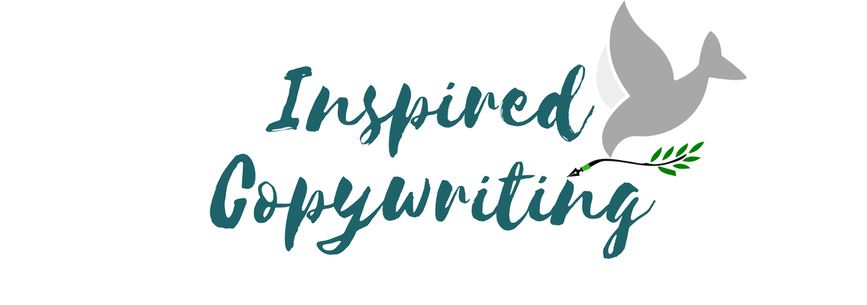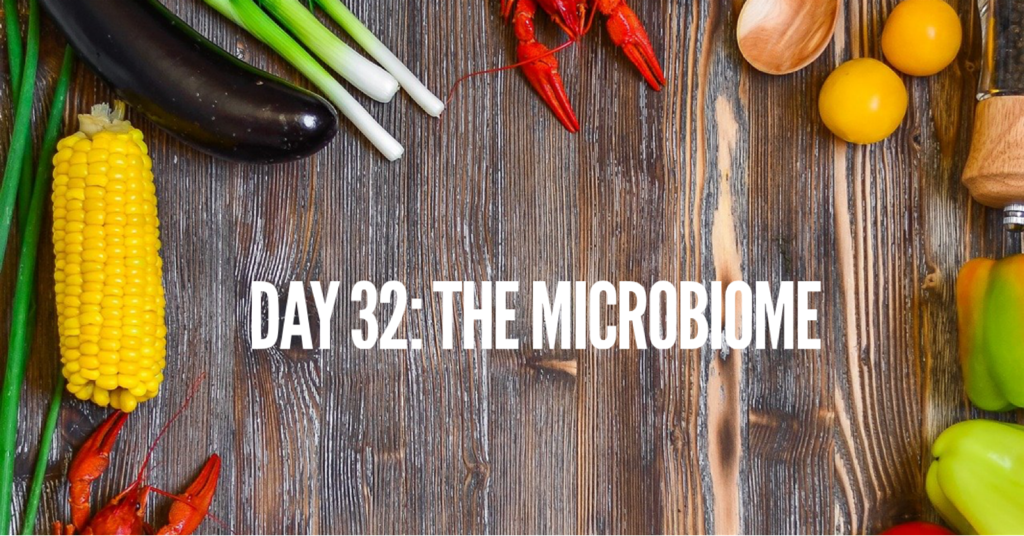Day 32: The Microbiome
An exciting finding in recent studies is the connection between our food intake and our brain.
Experts call it the Gut-Brain Axis. They found evidence that the community of bacteria in your gut can affect you mood and even your memory. We call this community of bacteria as the microbiome.
Does this bring evidence on the table that what you eat becomes you?
There are trillions of bacteria living in our gut, both good and bad ones. When more bad bacteria dominate our system, we suffer the symptoms of dysbiosis.
What causes this imbalance? Some factors can include:
- Stress
- Use of antibiotic
- Exposure to toxic and harmful substances
- Eating more refined and processed food that bad bacteria feed on and eating less of the fibers coming from fruits and vegetables that serve to nourish the good bacteria
These wipe out most of the good bacteria and cause poor immune health in the gut. Sometimes, the bad bacteria produce substances causing inflammation. Leakiness may occurs in the lining of our gastrointestinal tract, allowing harmful substances to enter the bloodstream. These substances reach many different organs and lead to inflammation and other disease conditions.
More studies are being done to look at gut-liver, gut-joint, gut-heart, and gut-kidney axes.
While researchers are looking for answers, patients with autoimmune disorders have grown frustrated with their pain symptoms. Poor quality of life, dysfunctions, and lifestyle inhibitions, which traditional medicine cannot solve, push them to seek alternative means.
Many health providers now factor in their patients’ gut health in managing autoimmune and inflammatory diseases.
As a result, the use of prebiotics, probiotics, and even psychobiotics increased in recent years.
What other trends do we see? What kind of dietary and lifestyle modifications do experts promote?
Here are a few:
1) Eat more of a plant-based diet and try fermented foods, which are thought to bring back the balance in the gut microbiome. Some believe that green and leafy vegetables may act as substrates for good bacteria. That’s a food for thought for everyone;
2) Avoid ultra-processed foods, additives, and chemicals that may be viewed as a foreign body in the gut and may trigger an immune response;
3) Monitor food intake and observe those that trigger symptoms, then eliminate and gradually reintroduce foods regarded with a high degree of suspicion; and
4) Manage stress to prevent its possible lousy impact on the gut microbiome through relaxation techniques like meditation, sleep, exercise, hobbies, and positivity.
People’s gut instincts now lead them to consume more organic, all-natural, fresh farm produce and local products hoping to boost their gut health. They’re minding their guts with more common sense.
They start to ask, “Have the get-it-done-fast mentality (fast-food and fast-processing) finally taken its toll on our gut, snagged it, and tore it apart?”
Perhaps it’s time to mind our gut and ponder.
What’s in your gut?
The answer might lead you to the key that could save you from gut-wrenching troubles
Experts call it the Gut-Brain Axis. They found evidence that the community of bacteria in your gut can affect you mood and even your memory. We call this community of bacteria as the microbiome.
Does this bring evidence on the table that what you eat becomes you?
There are trillions of bacteria living in our gut, both good and bad ones. When more bad bacteria dominate our system, we suffer the symptoms of dysbiosis.
What causes this imbalance? Some factors can include:
- Stress
- Use of antibiotic
- Exposure to toxic and harmful substances
- Eating more refined and processed food that bad bacteria feed on and eating less of the fibers coming from fruits and vegetables that serve to nourish the good bacteria
These wipe out most of the good bacteria and cause poor immune health in the gut. Sometimes, the bad bacteria produce substances causing inflammation. Leakiness may occurs in the lining of our gastrointestinal tract, allowing harmful substances to enter the bloodstream. These substances reach many different organs and lead to inflammation and other disease conditions.
More studies are being done to look at gut-liver, gut-joint, gut-heart, and gut-kidney axes.
While researchers are looking for answers, patients with autoimmune disorders have grown frustrated with their pain symptoms. Poor quality of life, dysfunctions, and lifestyle inhibitions, which traditional medicine cannot solve, push them to seek alternative means.
Many health providers now factor in their patients’ gut health in managing autoimmune and inflammatory diseases.
As a result, the use of prebiotics, probiotics, and even psychobiotics increased in recent years.
What other trends do we see? What kind of dietary and lifestyle modifications do experts promote?
Here are a few:
1) Eat more of a plant-based diet and try fermented foods, which are thought to bring back the balance in the gut microbiome. Some believe that green and leafy vegetables may act as substrates for good bacteria. That’s a food for thought for everyone;
2) Avoid ultra-processed foods, additives, and chemicals that may be viewed as a foreign body in the gut and may trigger an immune response;
3) Monitor food intake and observe those that trigger symptoms, then eliminate and gradually reintroduce foods regarded with a high degree of suspicion; and
4) Manage stress to prevent its possible lousy impact on the gut microbiome through relaxation techniques like meditation, sleep, exercise, hobbies, and positivity.
People’s gut instincts now lead them to consume more organic, all-natural, fresh farm produce and local products hoping to boost their gut health. They’re minding their guts with more common sense.
They start to ask, “Have the get-it-done-fast mentality (fast-food and fast-processing) finally taken its toll on our gut, snagged it, and tore it apart?”
Perhaps it’s time to mind our gut and ponder.
What’s in your gut?
The answer might lead you to the key that could save you from gut-wrenching troubles
FOOD FOR THOUGHT
What do you eat or drink first thing in the day? Does it feed your good or bad bacteria? What’s the last thing that you feast on? Does it promote or sabotage your gut health?

